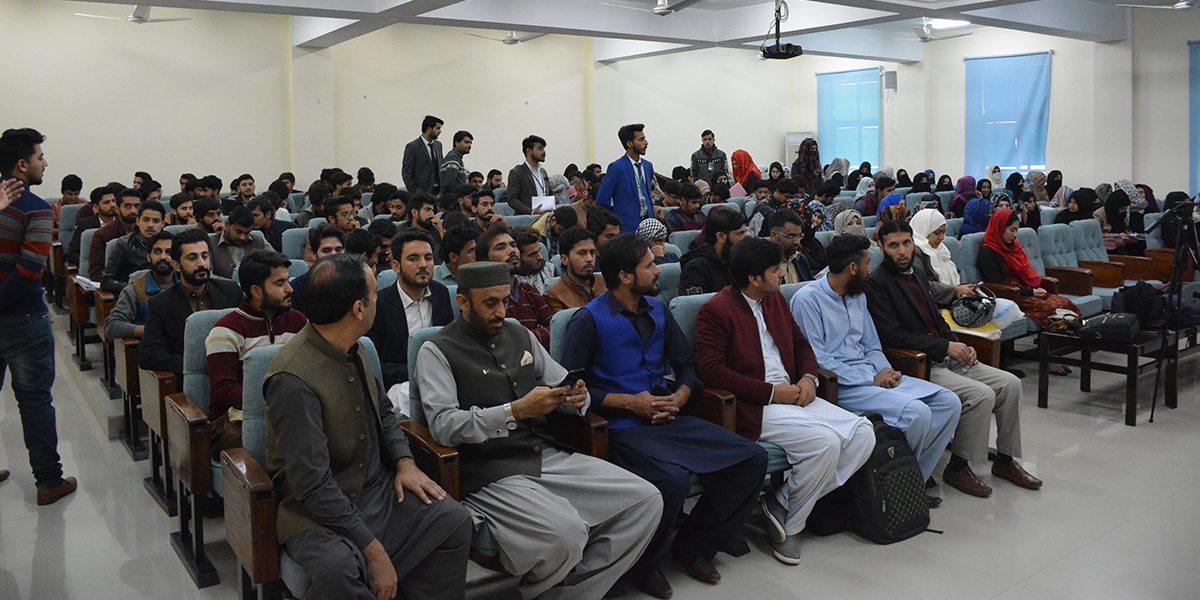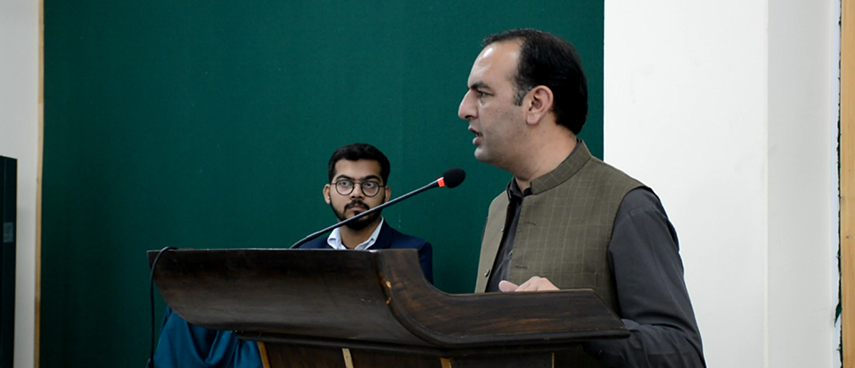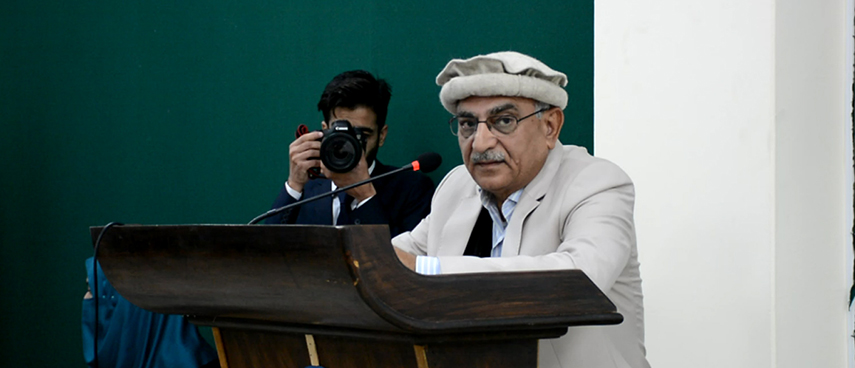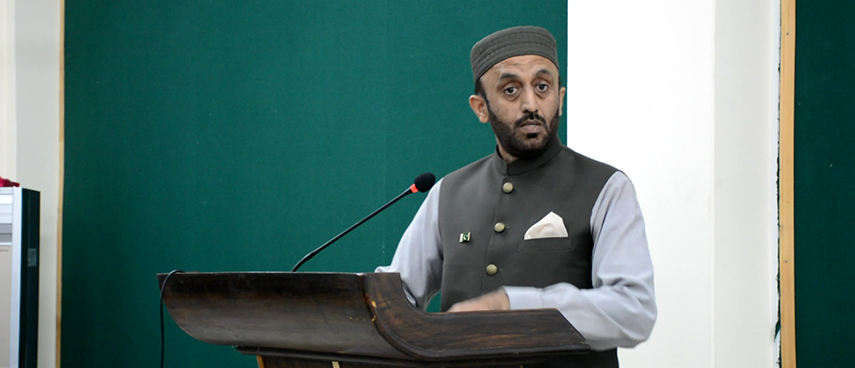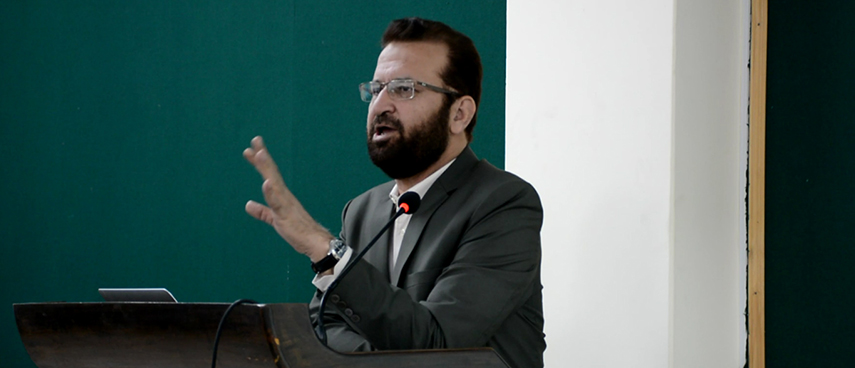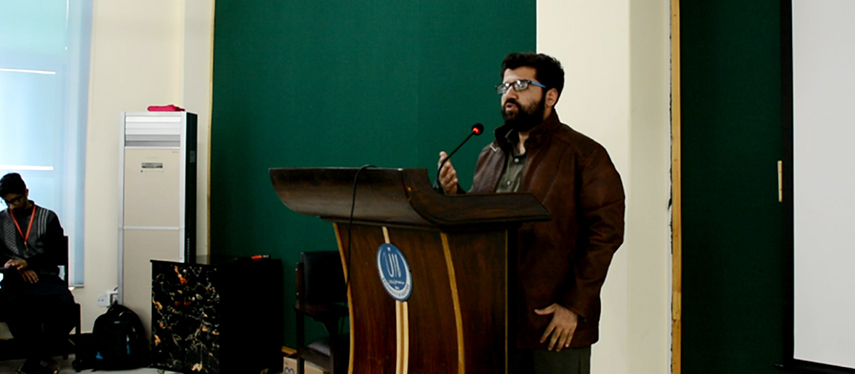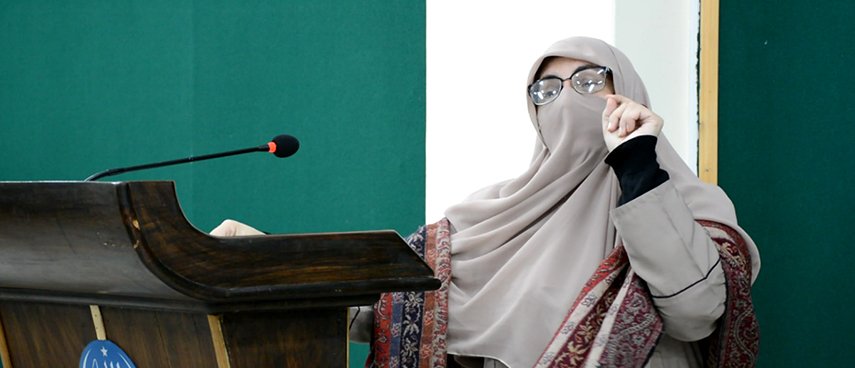The Center for Research and Security Studies (CRSS) conducted the tenth two-day PACE Collaborative workshops and debates for university students, on November 27-28, 2019, in Haripur. The workshop was held at University of Haripur, and was organized under the umbrella of the Pakistan Center of Excellence (PACE), a counter-radicalization and pluralistic values’ focused project, in collaboration with the Dutch Government.
Participants included students from University of University of Haripur. Mr. Saqib Awan, Lecturer Management Sciences Department welcomed the participants to the event. He shared that it is an immense pleasure for the university and students to have CRSS team over for the seminar. He mentioned about his experience as one of the participants of phase I of PACE Collaborative Workshops. He said that his experience with PACE has always been good in terms of knowledge sharing and capacity building. He also mentioned that during the workshop he got a chance to interact with Baha’i community in an interactive discussion and was pleased to know about their beliefs and practices. He added that PACE helped him understand and respect the perspectives and avoid to indulge in any discriminatory behaviour. This opportunity will surely impact our students in a positive way and I hope to see a change in understanding of differences.
Vice Chancellor, University of Haripur, opened the session with great focus on rule of law. He said that I have gone through the schedule and he is pleased to see the topics included like rule of law and democracy. He said that rule of law is a prerequisite for a democracy and without its implementation, we can look forward to have equality in a society. I hope the speakers will talk in detail and I hope the students will benefit from this opportunity to a maximum.
Farhana Kanwal, Project Manager PACE, said that it is a very different experience coming to Bhakkar and getting to know the students and interacting with them. She shared that PACE is a counter radicalization initiative by CRSS which was started in September, 2015 and completed its first phase in September, 2018. The core objective of PACE is to indoctrinate the tradition of questioning and critical thinking among the youth of Pakistan. She added that the purpose of such activities is to bring together the youth at one platform and discuss about critical issues of multiculturalism, diversity, democracy and accountability.
Dr. Abdul Muhaimin was the first speaker of the day who spoke on “Fundamental Human Rights and Tolerance”. Dr. Muhaimin specifically focused on Islamic teachings on tolerance. He referred to a number of verses from the Holy Quran and said that Islam does not allow the imposition of its teachings. Islam rather believes in discussion that can promote critical thinking. He said that fundamental human rights were first introduced in the last sermon of our Holy Prophet (PBUH) who specifically stressed on women rights and abolition of slavery. He added that if a Muslims want respect for themselves, they should start giving respect. If you want something in life, stop asking for it, instead start giving it, it will come back to you. He commented that one of the biggest problems in Pakistan’s #education system is that we don’t offer any vision to our youth. Our #youth will not progress unless we start encouraging a culture of questioning.
Mr. Safiullah Gul, Bureau Chief Aap News had his session on ‘Media and Ethics.’ He, through various exercises and activities, shared with students it is very important to share only fact-based news with audience. The credibility and authenticity of a news provides foundational ground for ethical journalism. He criticised today’s journalism for sensationalising and exaggerating things for ratings. Sensationalism should be avoided and self-censorship should be considered. Biased and abusive attitude should not be accepted.
Mr. Asif Khan said that one of the reasons for human rights violations is that human rights education is not emphasized. She suggested that youth as change-makers and future leaders must enhance their knowledge of human rights so that the violations can be prevented. Sharing her views on ideals of diversity equality and tolerance, she added that these ideals are achievable once youth starts believing in the importance of these values of social cohesion.
Advocate Ali Gohar shared his views on “Rule of Law,” and said that rule of Law means that everyone in the society is subject to and equal before law regardless of one’s socio-political or economic background. Adherence to law is critical to uphold rule of law. He said that across the board accountability of indiscriminate nature is key to uphold rule of law and strengthen social cohesion. The de-politicization of the accountability processes is of paramount importance for transparent democracy. The application of accountability should not only be for the violation of laws and crimes committed but also for criminal negligence committed. The selective application of law is extremely detrimental to peace and potential to disintegration. Those at helm of the implementation of laws should be extremely responsible and vigilant as the powers come with great responsibilities. There is a very critical linkage between laws and rule of law; the better the law, the stronger the rule of law. The dispute resolution mechanism – including the alternate dispute resolution systems in place – is another crucial tool to ensure accessible justice. Rule of law shall only prevail when we believe others to be our equal.
Ms. Amna Sardar, former MPA KP Assembly, said that democracy is about inclusion where the citizens feel that they belong to the society, government and the state and are being represented on the issues that concern them. Besides parliament, judiciary and executive, media is also considered as fourth pillar of the state as it also represents the society. The primary role of parliamentarians is to voice the concerns of citizens in the parliament and convey their feedback critical to inclusive policy making processes, as the policy making should be inclusive of the matters that concern the citizens the most. The public representatives also need to aware of their roles and responsibilities as policy makers in order to do justice to their mandate and make public friendly laws. Besides representation, the other important roles of parliamentarians are oversight, representation and budget making.
Ms. Farhana Kanwal closed the session with highlighting the importance of debates and critical thinking. She said that debate is a way of identifying and discussing the issues with logic and reason. She further said that an ideal society would always look beyond differences and there will be respect of rights and opinions for all, with no discrimination. Ms. Kanwal also thanked the participating universities and students for their support and encouragement throughout the seminar.

